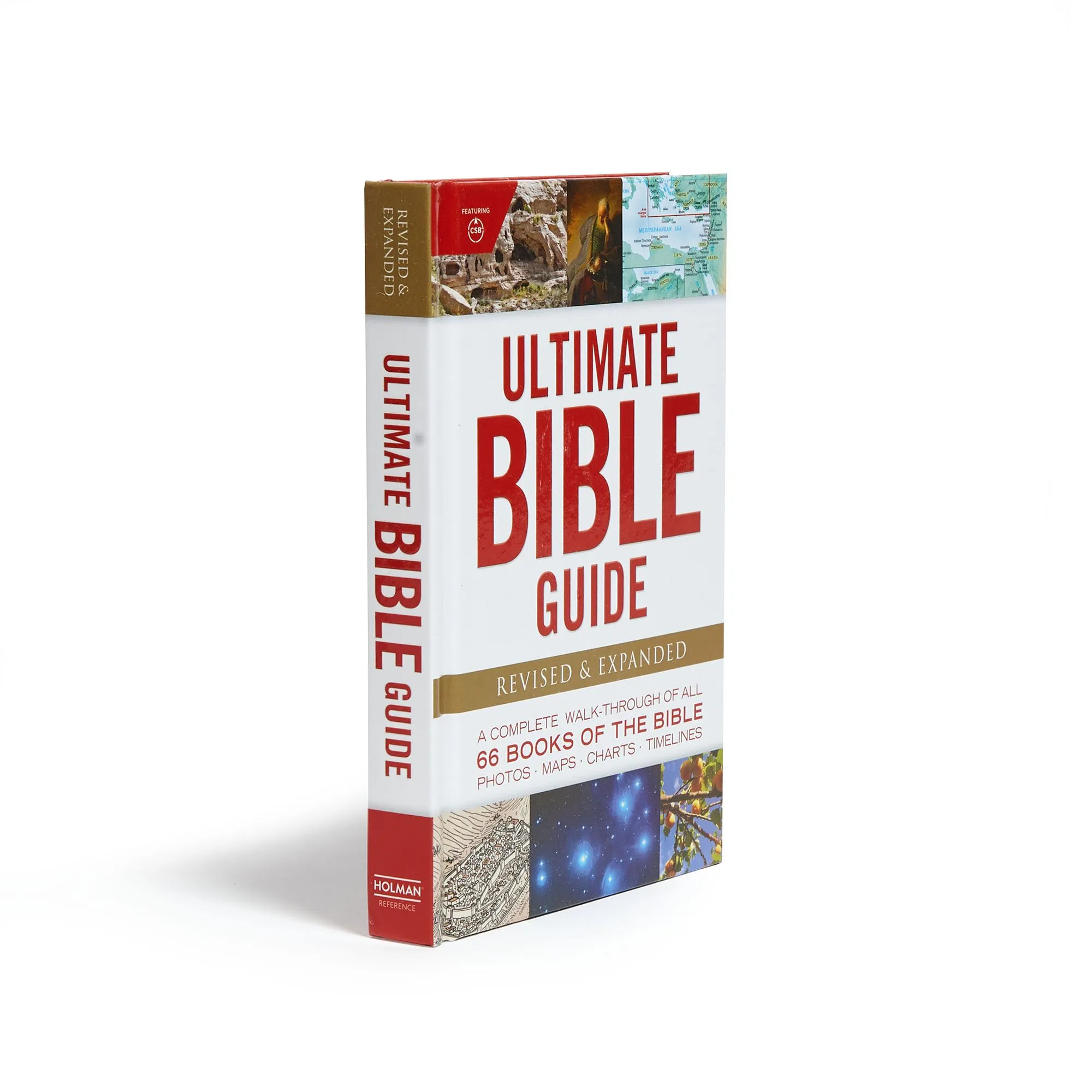Discover the Ultimate Guide to Understanding Christianity and the Bible
Welcome to the ultimate guide for those interested in learning more about Christianity and the Bible. Whether you’re a beginner or a seasoned believer, this guide will provide you with the tools and resources necessary to dive deeper into your faith.
Here, we’ll explore a variety of subtopics, including how to approach studying the Bible, key verses and stories to know, understanding the different translations and versions available, tips for applying Biblical teachings to daily life, and resources for further study and exploration.

Our goal is to inform and guide you in a friendly manner, no matter where you are in your spiritual journey. So, let’s dive in and discover all the Bible has to offer. Continue reading to learn more.
How do I approach studying the Bible?
Studying the Bible can be a daunting task, especially for those new to Christianity. However, with the right approach, anyone can gain a deep understanding of this ultimate guide.

First and foremost, it’s important to approach the Bible with an open mind and heart. Rather than seeking to prove preconceived notions or beliefs, allow yourself to be receptive to new ideas and interpretations.
Another key factor in effective Bible study is consistency. Set aside dedicated time each day or week for reading and reflection. This will help you build momentum and stay engaged with the text.
Additionally, don’t hesitate to seek out additional resources such as commentaries or study guides. These can provide valuable context and insight into the historical and cultural background of biblical passages.
Lastly, remember that studying the Bible is not just an intellectual pursuit but a spiritual one as well. Take time to pray and reflect on what you’ve learned, asking for guidance in applying these lessons to your life.
Approaching Bible study with an open mind, consistency, utilizing additional resources,and incorporating prayer will lead anyone down a path of deeper understanding in Christianity through this ultimate guidebook.
Key verses and stories to know are.
When it comes to understanding Christianity, there are certain key verses and stories that every believer should know. These stories not only provide insight into the teachings of Jesus Christ but also offer guidance on how to live a fulfilling and meaningful life.
One of the most well-known stories in the Bible is that of David and Goliath. This story teaches us about courage, faith, and perseverance in the face of seemingly insurmountable odds. It reminds us that with God’s help, we can overcome any challenge.
Another important story is that of the Good Samaritan. This parable shows us the importance of compassion and kindness towards others, regardless of their background or circumstances. It teaches us to love our neighbors as ourselves, even if they are different from us.
In addition to these stories, there are also key verses that every Christian should be familiar with. One such verse is John 3:16 which states “For God so loved the world that he gave his one and only Son, that whoever believes in him shall not perish but have eternal life.” This verse encapsulates the core message of Christianity – God’s love for humanity through his son Jesus Christ.
Another important verse is Matthew 22:37-39 which says “Love the Lord your God with all your heart and with all your soul and with all your mind.’ This is the first and greatest commandment. And the second is like it: ‘Love your neighbor as yourself.’” These verses remind us to prioritize our relationship with God above all else while also emphasizing our duty to show love towards others.

By familiarizing ourselves with these key stories and verses in the Bible, we can deepen our understanding of Christianity while also applying these lessons to our daily lives.
Understanding the different translations and versions available
Understanding the different translations and versions of the Bible can be a daunting task, especially for those who are new to Christianity. However, having a basic understanding of these translations can greatly enhance one’s understanding of the text and its message.
The Bible has been translated into numerous languages over thousands of years, resulting in various versions that differ in language style, interpretation, and accuracy. Some translations aim to preserve the original language as closely as possible while others prioritize readability for modern audiences.
One popular translation is the King James Version (KJV), which was first published in 1611. Its use of archaic English can make it challenging for modern readers to understand, but many appreciate its poetic language and historical significance.
On the other hand, more contemporary translations such as the New International Version (NIV) or English Standard Version (ESV) prioritize clarity and accessibility while still striving to remain faithful to the original text.
It is also important to note that some translations may include additional books or exclude certain passages compared to others. For example, Catholic Bibles include several books not found in Protestant Bibles.
Overall, it is recommended that individuals explore different translations and versions of the Bible to find one that resonates with them personally. Consulting with a trusted religious leader or scholar can also provide valuable insights into interpreting difficult passages or understanding cultural context.
By taking time to understand these differences between translations and versions available today will ultimately help individuals better grasp biblical concepts which will lead them towards spiritual growth within their faith communities.
Tips for applying biblical teachings to daily life.
Applying Biblical teachings to daily life can be a daunting task, but it is also one of the most rewarding endeavors one can embark upon. The Bible is the ultimate guidebook for living a purposeful and fulfilling life. Here are some tips for making Biblical teachings a part of your everyday routine.
Firstly, make time for prayer and meditation. Prayer is an essential aspect of Christian life, as it allows us to connect with God and seek guidance in our daily affairs. Taking even a few minutes each day to pray or meditate on Scripture can help you stay centered and focused throughout the day.

Secondly, surround yourself with positive influences that align with Biblical values. Joining a church community or Bible study group can provide you with like-minded individuals who share your faith and are committed to living their lives in accordance with God’s word.
Thirdly, practice forgiveness towards others as well as yourself. Forgiveness is central to Christianity, as Jesus himself taught us to love our enemies and forgive those who have wronged us. Holding onto grudges only serves to weigh down our spirits and hinder our ability to live fully in accordance with God’s will.
Finally, remember that no one is perfect – we all fall short of God’s glory at times. When you inevitably make mistakes or stumble along your spiritual journey, do not be discouraged – instead use these moments as opportunities for growth and learning.
By incorporating these tips into your daily routine, you can begin applying Biblical teachings more fully into your everyday life while growing closer to God in the process.
Resources for further study and exploration.
For those seeking to deepen their knowledge of Christianity, there is a plethora of resources available to aid in their exploration. From books and podcasts to online courses and study groups, there are endless opportunities for further study.

One valuable resource is the Ultimate Bible Guide, which provides a comprehensive overview of the Bible’s key themes and teachings. This guide offers insights into biblical history, theology, and interpretation that can help readers gain a deeper understanding of the Christian faith.
In addition to the Ultimate Bible Guide, there are many other resources that can aid in studying Christianity. Books such as “Mere Christianity” by C.S. Lewis or “The Case for Christ” by Lee Strobel offer compelling arguments for the truth of Christianity. Podcasts like “The Bible Project” or “Ask NT Wright Anything” provide engaging discussions on various aspects of Christian theology.
For those who prefer more structured learning environments, online courses such as those offered by The Gospel Coalition or The Great Courses Plus can provide in-depth education on topics ranging from biblical history to systematic theology.
Finally, joining a local church or small group can offer opportunities for community and fellowship with other believers while also providing opportunities for group study and discussion.
With so many resources available for further study and exploration into Christianity, individuals seeking to deepen their understanding have ample options at their disposal. Whether through books, podcasts, online courses or community groups – pursuing knowledge and understanding has never been more accessible or enjoyable!
Conclusion

With this ultimate bible guide, you now have the knowledge and resources necessary to approach studying the Bible. From understanding different translations and versions available to applying Biblical teachings in your daily life- there are many valuable lessons that can be found throughout its stories. No matter what level of faith or expertise you possess, it is important to explore further study and continue learning about Christianity as much as possible. We encourage you to take advantage of all the incredible Christian resources out there so that you can gain a deeper understanding of both yourself and scripture too!












